Anonymous Surveys ENCOURAGEMENT AWARD WINNERS 2022
ATA Scientific would like to thank all those that participated in our April 2022 Encouragement Award promotion.
Most University students can take part in anonymous surveys to rate the “quality” of their teachers and the course they take. Unfortunately, these surveys have also become a platform for increasingly abusive comments that have nothing to do with teaching quality. The impacts on teaching staff can be serious and highly traumatising. Early career academics, casual staff, women and minorities are especially affected. Positive ratings and comments are often required to ensure their continued employment or promotion.
Our latest competition asked the question: Should universities persist in employing anonymous surveys? Can you suggest better ways to assess the quality of teaching and courses?
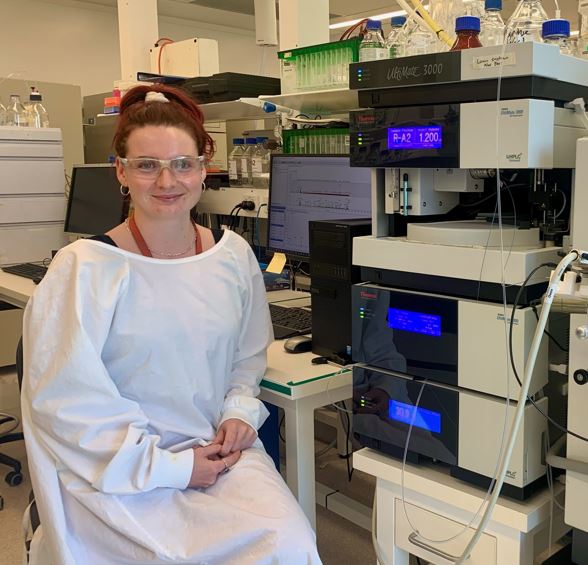
CONGRATULATIONS TO OUR 3 WINNERS!
Three entries were selected to receive our award– first prize at $1500 and 2 runners up at $600 each.
Congratulations to Ashleigh Louise Dale, PhD student under the supervision of Prof. Stuart Cordwell at the School of Life and Environmental Sciences, University of Sydney.
Ashleigh’s PhD research is primarily in proteomics, biochemistry, and microbiology. Ashleigh focuses on the use of cross-linking mass spectrometry to define proteome-wide protein-protein interactions in the enteric bacteria Campylobacter jejuni. Ashleigh also aims to investigate how post-translational modifications impact these interactions to elucidate mechanisms of pathogenesis. To date, Ashleigh has optimised and employed various cross-linking mass spectrometry methods to study these protein interactions. The award will be spent at the 70th ASMS Conference on Mass spectrometry and Allied Topics in Minneapolis, Minnesota in June this year. Here she will get to listen to and potentially network with several researchers who have developed the mass spectrometry-based methods she has been using throughout her PhD.
After completing her PhD at the University of Sydney, Ashleigh plans to pursue a career in academia, where hopefully she will carry out mass spectrometry-based research and applications.
 Congratulations to Lucy Fitschen, PhD candidate at the University of Wollongong, based in Molecular Horizons and working under the supervision of Dr Gökhan Tolun.
Congratulations to Lucy Fitschen, PhD candidate at the University of Wollongong, based in Molecular Horizons and working under the supervision of Dr Gökhan Tolun.
Lucy’s project uses cryogenic electron microscopy (cryo-EM) to investigate the structure of annealase proteins in viruses. Annealases form a complex with their partner exonucleases, and function as a two-component recombinase called an EATR (Exonuclease Annealase Two-component recombinase). EATRs catalyse the single-strand annealing homologous DNA recombination reaction, which is used for the repair of double strand DNA breaks. In particular, Lucy is investigating the structure of the bacteriophage lambda annealase as a part of the EATR complex, aiming to deduce its detailed molecular mechanisms from its structure.
After completing a year-long honours project, I have now moved onto my PhD studies. I am passionate about research and cryo-EM, with plans to continue in these fields after getting my degree.
Lucy hopes to use the award money to attend the Australian Society for Microbiology Annual National Meeting 2022. This will be an invaluable experience which will allow her to present her scientific findings while networking with other researchers and learning what’s new in this field of research.
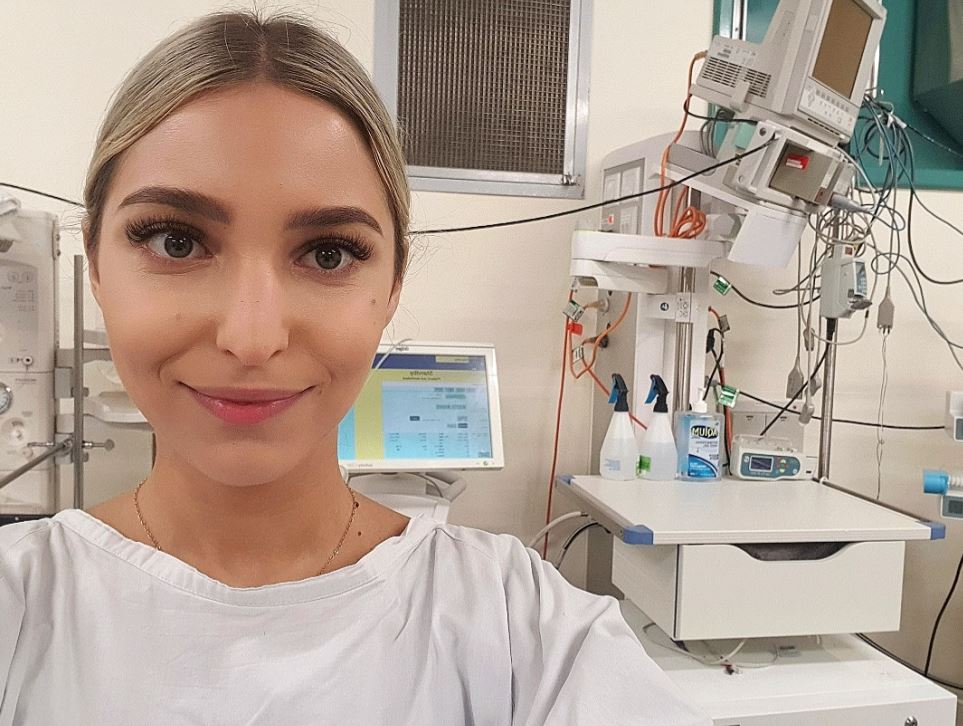 Congratulations to Claudia Pedulla, graduate research assistant currently working at the University of Western Australia under the supervision of Professor Jane Pillow.
Congratulations to Claudia Pedulla, graduate research assistant currently working at the University of Western Australia under the supervision of Professor Jane Pillow.
Claudia recently completed an Honours degree with Professor Pillow where she used a fetal ovine model of chorioamnionitis to explore the development of the circadian rhythm. Chorioamnionitis is a leading cause of extremely preterm birth and impacts many developmental processes in utero. Furthermore, very little is known about the timing of circadian rhythm development in utero, allowing this research to address this gap in knowledge and better understand the fetal circadian timing system.
Claudia will present her work at the Perinatal Society of Australia and New Zealand (PSANZ) Annual Congress, held in Adelaide on the 16th-18th of May 2022. She will use the prize money to attend the congress in person, which will be an invaluable opportunity to present her research and facilitate networking.
We would like to thank all those that participated. The next Encouragement Award will be posted on our website soon.
For more information or to stay informed of other upcoming promotions please ‘Like us” on Facebook or contact us.
Contact us#Breakthebias IWD ENCOURAGEMENT AWARD WINNERS 2022
ATA Scientific would like to thank all those that participated in our April 2022 Encouragement Award promotion.
Our latest competition aimed to support #BreakTheBias campaign to celebrate International Women’s Day. We invited young scientists to imagine a gender-equal world free of bias, stereotypes, and discrimination, that breaks the mould for women’s equality, and asked the question, “When we #BreakTheBias, what will a viable academic career path look like?”
We were overwhelmed by the response and received so many great entries.
CONGRATULATIONS TO OUR 3 WINNERS!
Three entries were selected to receive our award– first prize at $1500 and 2 runners up at $600 each.
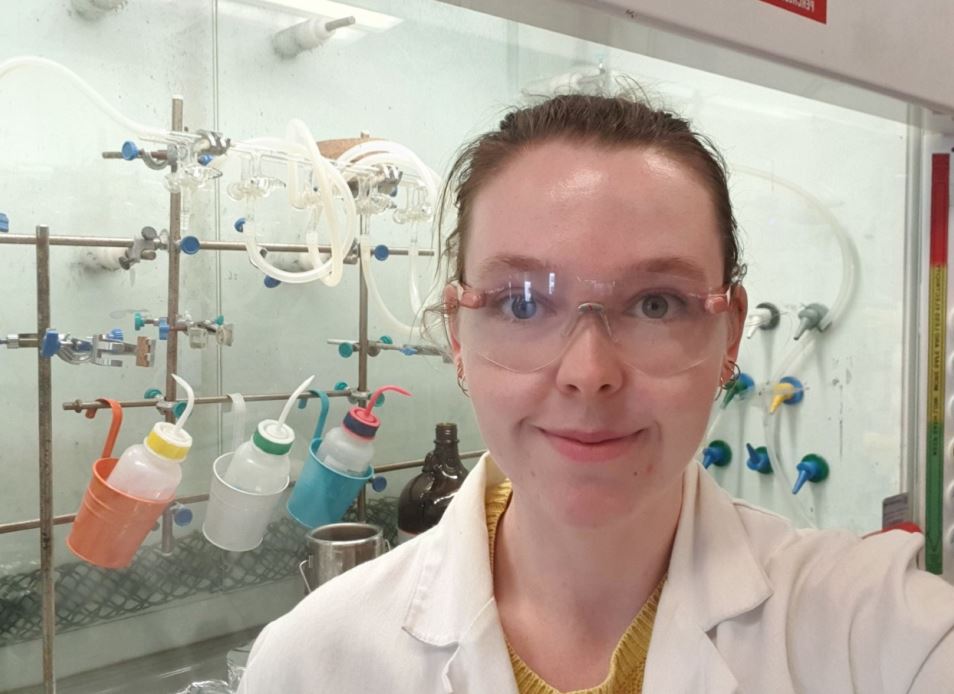 Congratulations to Samantha Miles, PhD candidate at the School of Chemistry, University of New South Wales, under the supervision of Associate Professor Luke Hunter.
Congratulations to Samantha Miles, PhD candidate at the School of Chemistry, University of New South Wales, under the supervision of Associate Professor Luke Hunter.
Samantha’s PhD research examines how fluorine could be applied in a controlled way to medicinal peptides in order to improve their therapeutic potential, relying on both synthetic and pharmacological processes.
I am also passionate about the initiatives I’ve been involved in beyond the scope of my research that has shown me the value of science communication and addressing inequality within academia. I hope that my future sees me spend more time in these areas as well as in medicinal chemistry research.
The award will be spent at the RACI 2022 National Congress where Samantha has been accepted to give a talk on her research. This will be the first conference Samantha will attend in the course of her PhD. Here she hopes to form new connections with chemists and multi-disciplinary researchers in similar areas, that she can build upon throughout her career as well as learn about emerging topics that she is passionate about.
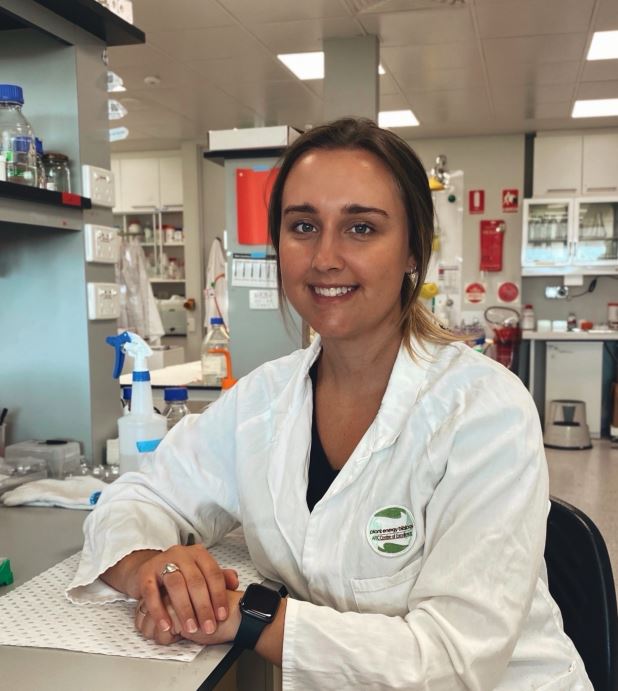 Congratulations to Leni Campbell-Clause, PhD candidate at the University of Western Australia, School of Molecular Sciences, working under the supervision of Professor Ian Small.
Congratulations to Leni Campbell-Clause, PhD candidate at the University of Western Australia, School of Molecular Sciences, working under the supervision of Professor Ian Small.
Leni’s area of focus is in molecular genetics, specifically, the chloroplast genome which encodes for a number of genes necessary for crucial functions within plants such as photosynthesis. Leni aims to expand upon current scientific understanding surrounding the regulation of these genes. Up until now, time-consuming, and laborious classical biochemical approaches have predominately been used. Instead, Leni is employing bioinformatic approaches for faster and more efficient alternative discovery routes. Understanding the functions of genes within the chloroplast genome and their regulation will allow us to more accurately genetically engineer plants, crucial to advances in agriculture.
“After completing my PhD at the University of Western Australia I am looking forward to pursuing career opportunities in either industry or academia centred around genetic engineering in plants. I am passionate about science communication and outreach and aim to use my career to stimulate change and improve the relationship between academia, industry, and the community.”
Leni plans to use the award to attend the Chloroplast Biotechnology Gordon Research Conference in Los Angeles next year. This opportunity will present her with invaluable opportunities to learn from experts in the field of chloroplast biology, enabling her to connect and collaborate with researchers alike.
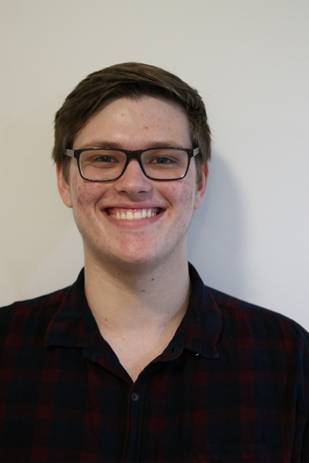 Congratulations to Liam Krueger, PhD candidate at Pharmacy Australia Centre of Excellence (PACE), University of Queensland, working under the supervision of Associate Professor Amirali Popat.
Congratulations to Liam Krueger, PhD candidate at Pharmacy Australia Centre of Excellence (PACE), University of Queensland, working under the supervision of Associate Professor Amirali Popat.
Liam’s current project focuses on 3D printing oral dosage forms. With 3D printing the group can customise tablets to change the dose, shape, size, and many other parameters with the click of a button. By being able to 3D print drug-loaded tablets, Liam aims to be on the forefront of this new and exciting field. He wishes to learn as much as he can from leading experts in his field, and to hopefully one day become an expert himself. Using the award to attend conferences relevant to pharmaceuticals, Liam hopes to be able to take on board lots of new knowledge that his peers share. In turn he aims to use this to inspire his future research, and as a pharmacist he especially wishes to contribute something meaningful to our community. This award will be used to send Liam to the Drug Delivery Australia conference in November at the end of this year.
We would like to thank all those that participated. The next Encouragement Award will be posted on our website soon.
For more information or to stay informed of other upcoming promotions please ‘Like us” on Facebook or contact us.
Contact usNOV ENCOURAGEMENT AWARD WINNERS 2021
ATA Scientific would like to thank all those that participated in our Nov 2021 Encouragement Award promotion.
Most people are aware of the impact the pandemic has had on the general economy, but we don’t hear much from students themselves on how it has impacted their life. The shift to hybrid learning has become the norm, so now it is time for us to reconnect with all students and see the world from their point of view.
Our latest competition invited young scientists to explore their creativity and create a short 60 second video that showcased a typical day in their life as a student. Some chose to create a ‘tiktok’ style video of work in their lab, other presented a “60 second thesis” style talk to describe their research project.
We were overwhelmed by the response and received so many great entries that we decided to increase the number of prizes from six to nine $500 awards!!!
CONGRATULATIONS TO OUR 9 WINNERS!
Below is a list of the top nine video entries selected to receive $500 each.
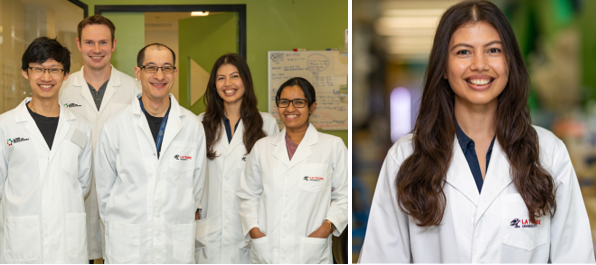
Congratulations to Airah Javorsky, third year PhD student at the Department of Biochemistry & Genetics, La Trobe University, under the supervision of Professor Marc Kvansakul.
Airah’s PhD is focused on the subversion of a cell signaling pathway called cell polarity and how it’s hijacked by viral proteins. Airah is studying a range of viral proteins from the Coronavirus, influenza A virus through to Human t-cell lymphotropic virus and Tick-born encephalitis virus and how they interact with cell polarity proteins called Scribble and PALS1. Recent work has shown that when these proteins interact, viral pathogenesis appears worse than usual. By understanding the molecular pathways, the research group can be better equipped to combat these infections.
“My career goals focus on sticking with further understanding viruses and hopefully an overseas position in either America, Canada or Europe. Especially since the pandemic, it has made me appreciate viruses and travel even more. The award will be spent on covering the cost to attend and present at the 47th Lorne Conference on Protein Structure and Function, taking place February 6-10 to develop my presentation skills, facilitate collaboration and networking to allow me to reach my research goals.”
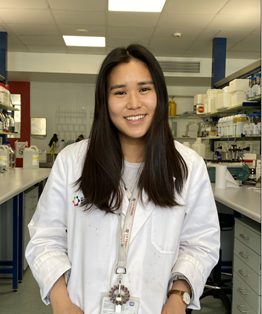
Congratulations to Lim Jing Ting Vernise, second year PhD student at LIMS La Trobe University working under the supervision of Dr Jacqueline Orian. Her PhD project focuses on how platelets play an important role in multiple sclerosis (MS). In collaboration with the Baker Institute, the group is testing the efficacy of a novel anticoagulant drug in-vivo. Vernise plans to carry on in her current research field and to hopefully play a part in the development of a novel MS drug.
The prize money will be used to attend the Progress in MS research scientific conference that will be held in Tasmania on the 3rd-5th April 2022, hopefully in person. “Sharing findings and learning from others in the field is always an important part for growth in your own research”.
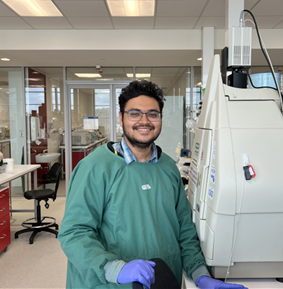 Congratulations to Rudrarup Bhattacharjee, PhD Candidate at the University of Adelaide, Neurogenetics Group, Adelaide Medical School, Faculty of Health and Medical Sciences, working under the supervision of Dr Raman Sharma, Prof Jozef Gecz and Prof Paul Thomas.
Congratulations to Rudrarup Bhattacharjee, PhD Candidate at the University of Adelaide, Neurogenetics Group, Adelaide Medical School, Faculty of Health and Medical Sciences, working under the supervision of Dr Raman Sharma, Prof Jozef Gecz and Prof Paul Thomas.
Rudra’s current project aims to identify the molecular basis of X-linked Intellectual disability arising due to mutations in the THOC2 gene, which is a part of highly conserved TREX complex, mediating mRNA export. Subtle insults in such a fundamental pathway leads to catastrophic consequences for the patients and understanding the biology behind development of this disease could potentially unlock the therapeutic targets to help the patient lead a better life.
Rudra endeavours to continue with his studies contributing to cutting edge molecular biology research to further his career with the ultimate goal of helping patients suffering from rare genetic diseases. Rudra intends to use the award money to attend the Lorne Genome Conference 2022 (https://www.lornegenome.org/) to present his work and to also gain further insight of the current state of research in Genome Biology.
Congratulations to Emily McKaige, PhD student at Monash University, School of Biological Sciences, under the supervision of A/Professor Robert Bryson-Richardson.
Emily’s PhD research focuses on limb-girdle muscular dystrophy, a life-threatening condition caused by muscle wasting. Currently, very little is known about this disease and no treatment options are available to patients . Emily’s project aims to address this gap in knowledge and identify the very first effective treatment. After her PhD, Emily plans to take up a postdoctoral research position in a leading-edge laboratory overseas and eventually hopes to become a group leader.
. Emily’s project aims to address this gap in knowledge and identify the very first effective treatment. After her PhD, Emily plans to take up a postdoctoral research position in a leading-edge laboratory overseas and eventually hopes to become a group leader.
“This award will allow me to attend and present my work at the International Zebrafish Conference 2022 or the Australia and New Zealand Zebrafish Meeting 2022, this will be an invaluable networking opportunity”.
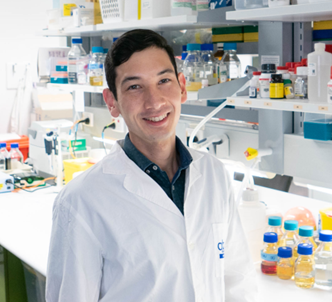 Congratulations to Drew Min Su Cylinder, second year PhD student at the Queensland Brain Institute, University of Queensland, working under the supervision of Professor Bruno van Swinderen.
Congratulations to Drew Min Su Cylinder, second year PhD student at the Queensland Brain Institute, University of Queensland, working under the supervision of Professor Bruno van Swinderen.
Drew’s research focuses on the mechanisms underlying general anaesthesia. Doctors have been using general anaesthetics on patients for over 150 years but how these drugs work has yet to be explained. Drew’s project uses C. elegans, a species of nematode worm, to investigate how the communication between neurons breaks down under general anaesthesia. A particular interest is if general anaesthetics have different effects on various neurotransmitter systems.
“I hope to use the money from the ATA Encouragement Award to travel overseas for a conference once borders open again.”
 Congratulations to Ilizel Retita, PhD candidate at the School of Materials Science & Engineering, University of New South Wales, under the supervision of Honorary Professor Sammy Chan.
Congratulations to Ilizel Retita, PhD candidate at the School of Materials Science & Engineering, University of New South Wales, under the supervision of Honorary Professor Sammy Chan.
Passionate about innovation, Ilizel has experience in developing and testing a novel material, designing new processes, and failure analysis of materials. Ilizel is currently developing novel hydrogen storage materials and wishes to pursue a profession that will advance hydrogen energy and related technologies. I propose to use the award of $500 to enrol in the UNSW Quantitave X-Ray Diffraction Analysis Short Course and Hydrogen Energy Conferences in 2022.
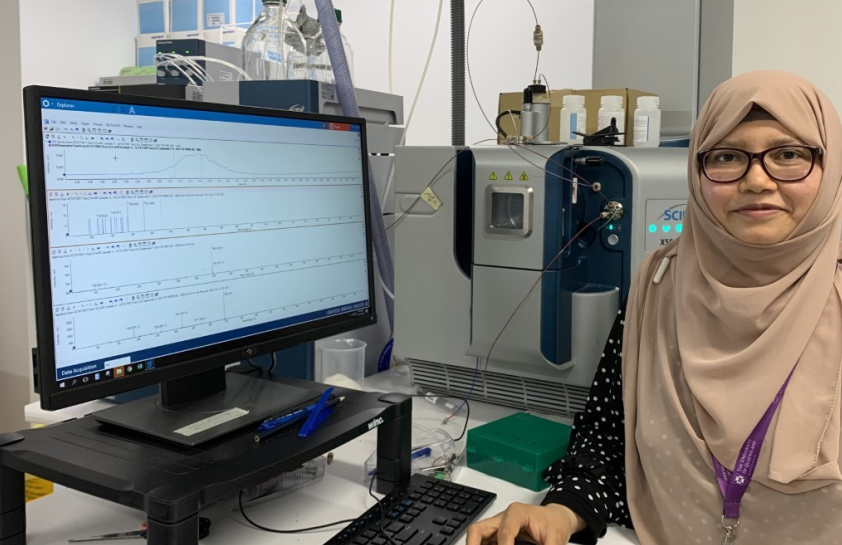 Congratulations to Marium Khaleque, PhD student from the School of Chemistry and Molecular Bioscience at the University of Queensland, working under the supervision with Associate Professor Benjamin Schulz.
Congratulations to Marium Khaleque, PhD student from the School of Chemistry and Molecular Bioscience at the University of Queensland, working under the supervision with Associate Professor Benjamin Schulz.
Marium is working on the regulation of protein N-linked glycosylation. N-glycosylation is an essential post-translational modification of eukaryotic proteins that directly affects protein folding and plays important roles in protein function, stability, solubility, secretion, resistance to proteases and temperature, and enhancing half-life. Deeper understanding of how this molecular pathway is regulated will help in improving the quality of therapeutic proteins, the diagnosis of diseases like cancer, and the development of vaccines. I am interested to work on the role of N-glycosylation in cancer development and diagnosis. Marium plans to use her award to attend ComBio2022 being hosted at the Melbourne Convention and Exhibition Centre (MCEC).

Congratulations to Jennifer Ton, Honours student at the Research School of Chemistry, The Australian National University, working under the supervision of Prof. Colin Jackson.
Jennifer’s current project focuses on identifying inhibitors for the CHIKV nsP2 protease which is a drug target for the treatment of Chikungunya fever. Using computational methods Jennifer is able to virtually screen libraries of small molecules and select the top hits which may potentially have high affinity to the active site of the protease of interest. Currently, there is only a crystal structure of the apo-protease. Jennifer attempted to co-crystallise the mutant with the substrate to have a better understanding of how a ligand interacts at the active site, which would provide a better template for molecular docking. She used a FRET-based assay to test the top hits identified from molecular docking with CHIKV nsP2 protease. She then tested the top three inhibitors for CHIKV nsP2 protease with other alphaviruses (viruses within the same family of CHIKV nsP2pro) to identify a ‘general’ inhibitor for alphavirus cysteine proteases. Jennifer is currently writing up her thesis.
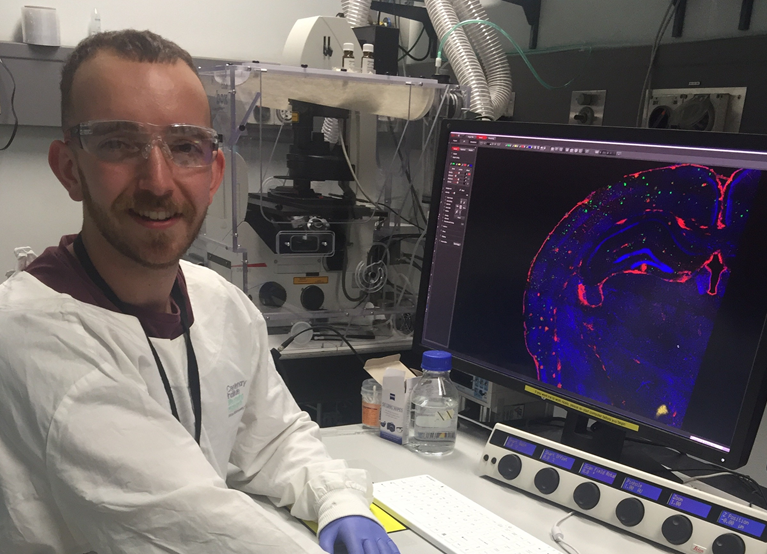 Congratulations to Andrew Quattrocchi, honours student at the Centenary Institute – Vascular Biology Program and the University of Sydney, working under the supervision of Professor Jennifer Gamble.
Congratulations to Andrew Quattrocchi, honours student at the Centenary Institute – Vascular Biology Program and the University of Sydney, working under the supervision of Professor Jennifer Gamble.
Andrew’s current research is focussed on a population of immune cells that surround and contact blood vessels, known as perivascular macrophages. This research is trying to understand the role of perivascular macrophages in the dysfunction in the blood brain barrier seen in Alzheimer’s Disease.
I plan to continue in research in Alzheimer’s Disease and the dementias, as I have always been driven to better understand the pathogenesis of this devastating neurological disease.
The prize money will go towards travelling to an ‘in person’ conference, either the Australian Vascular Biology Society Annual Conference or the Cerebrovascular Biology Australasia symposium in 2022. By attending these conferences Andrews will be able to connect with Australia’s leading experts in vascular and neuroscience research, and further broaden his perspective on different research approaches, methodologies and focuses.
But wait there is more!
We would like to thank all those that participated. The next Encouragement Award will be posted on our website early 2022.
For more information or to stay informed of other upcoming promotions please ‘Like us” on Facebook or contact us.
Contact usJULY ENCOURAGEMENT AWARD WINNERS 2021
ATA Scientific would like to thank all those that participated in our July 2021 Encouragement Award promotion.
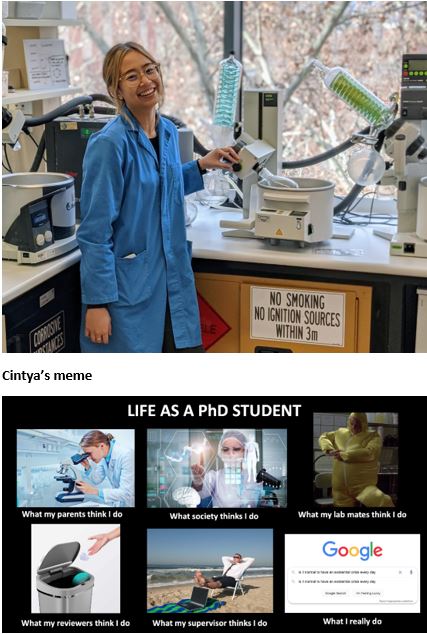
Many believe a picture says a thousand words, but a picture with a caption (known as a meme) goes one step further and transports a message or a story instantly to a target audience. Memes are a very powerful tool that allow us to communicate our thoughts to like-minded people online instantly. This is what gives them their appeal – not a surprise given the average attention span of internet users is about 8 seconds compared to that of a goldfish which is apparently 9 seconds!! In summary, the simple message is “Say it quick, and say it well”.
Our latest competition invited young scientists to explore their creativity and create a meme based on one or more of the five categories, namely COVID-19/ Quarantine; Scientific research; Life as a scientist/student; Scientists and sport; Animal friends for scientists.
CONGRATULATIONS TO OUR 10 WINNERS!
Below is a list of the top ten memes selected to receive our award– first prize at $1000 and 9 runners up at $200 each.
Congratulations to our first prize winner, Cintya Dharmayanti, second year PhD student at UniSA Clinical & Health Sciences, University of South Australia, working under the supervision of Associate Professor Anton Blencowe.
Cintya’s research focuses on the development of a nanoparticle system for ovarian cancer drug delivery, tailored to target key receptors expressed on the surface of ovarian cancer cells. By using specific targeting molecules and pH-responsive polymers, the nanoparticles are designed to seek out and infiltrate ovarian cancer cells to achieve intracellular drug release, leading to improved treatment efficacy and reduced side effects. After my PhD, I would love to continue research in the drug delivery space to help improve the health outcomes of those that need it most.
The ATA Encouragement Award will support me in attending a pre-doc training program in November 2021 (EMBL), and/or the 17th Pacific Polymer Conference in 2022, which would allow me to disseminate my work and connect with new networks (hopefully, in person)!
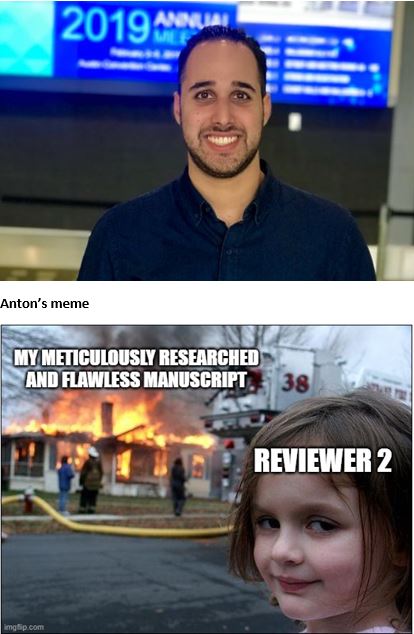
Congratulations to our runner up, Anton Nathanson, fourth year PhD student in the Biomedical Image Computing Lab at University of New South Wales, under the supervision of Professor Erik Meijering.
Anton is developing new technologies for designing diagnostics for human degenerative bone diseases, in particular osteoarthritis. His research combines cutting edge imaging, cellular biology, machine learning and big data in order to characterise the health status of human bone for the development of new diagnostic technologies.
Upon completing his PhD, Anton wishes to begin medical school to pursue a career in orthopaedics, whilst also being able to continue clinical research.
This award will be put towards attending ORS 2022 or similar orthopaedic conference to present the final completed work from his PhD.
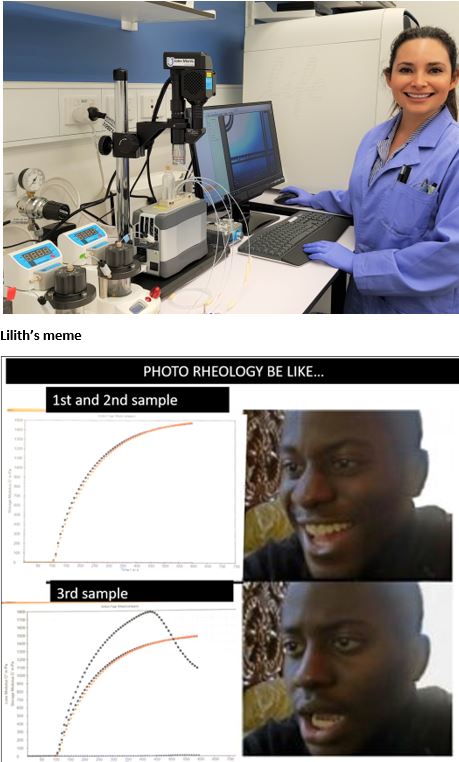
Congratulations to our runner up, Lilith Caballero Aguilar, Postdoc Researcher, from Swinburne University of Technology; St. Vincent’s Hospital, working under the supervision of Professor Simon Moulton.
Her current research focuses on the development of drug delivery systems to treat cancerous tumors as well as utilising the delivery of bioactive agents for regenerative medicine applications.
Lilith’s career goals are to continue doing research, become a professor one day, and have her own research group to create novel biomedical solutions.
The award will be spent on covering the cost to attend the International Biofabrication Conference which is happening in September 2021, which will help me to present my work and hopefully meet new collaborators and colleagues in my field.
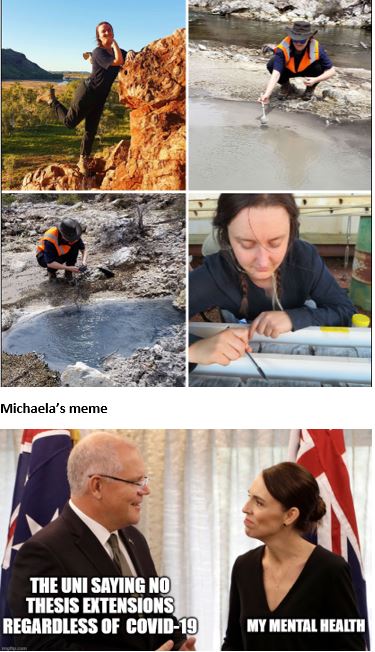
Congratulations to our runner up, Michaela Dobson, PhD Candidate at the University of Auckland, School of Environment, working under the supervision of Professor Kathleen A. Campbell.
Michaela’s research looks at the earliest evidence of terrestrial life on Earth in 3.5-billion-year-old rocks in the Dresser formation, Pilbara Craton, Western Australia. Initially interpreted as a shallow marine environment, recent research has indicated that the Dresser formations are terrestrial hot spring deposits. These hot spring deposits preserve biosignatures representing the earliest evidence of life on land, and aid in our understanding of the origin of life on Earth and possible life on other planets.
I wish to continue researching within the field of Geology and Astrobiology, hoping to refine our understanding of our place in the Universe. I am hoping to travel across to Australia in October (Covid depending) to finish some of my lab work that I cannot do in NZ. This award will assist me in this travel. Otherwise, I will attend the NZ Geologic Association (GSNZ) yearly conference at the end of the year. This fund will assist with this conference.
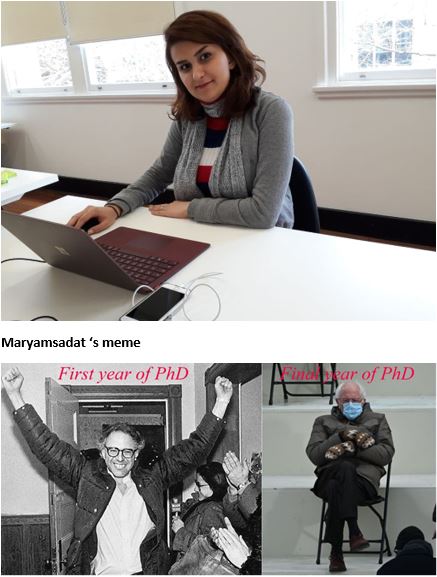 Congratulations to our runner up, Maryamsadat Hosseini, PhD student at the University of New South Wales, School of Civil and Environmental Engineering, under the supervision of Associate Professor Samsung Lim.
Congratulations to our runner up, Maryamsadat Hosseini, PhD student at the University of New South Wales, School of Civil and Environmental Engineering, under the supervision of Associate Professor Samsung Lim.
Bushfires may cause extensive damage to the environment and harm humans in populated areas. Bushfire susceptibility mapping helps to predict and provide the required management plans to reduce the adverse impacts from bushfires. Maryam’s research focuses on the use of evolutionary algorithms and statistical methods to create more accurate bushfire susceptibility maps. The result of her research will be useful for policy makers and managers to have better natural hazard management plans.
Maryam plans to attend a conference using this award which will provide opportunities for her to introduce herself as a new researcher in this field.
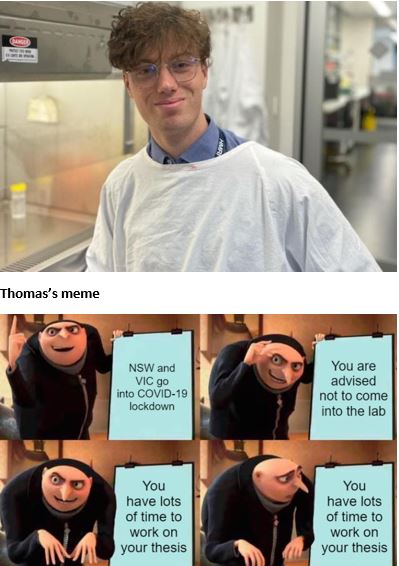
Congratulations to our runner up, Thomas Adams, PhD Candidate at the University of Newcastle, School of Biomedical Sciences and Pharmacy, working under the supervision of Dr Roger Liang.
Thomas works on novel nanomedicines for use in viral-induced respiratory disease, including asthma and chronic obstructive pulmonary disease (COPD). His group use a combination of chemical and biological techniques to bridge the gap between formulation science and biomedical science.
It’s an exciting time to be working in the respiratory and drug-delivery space; the long-term goal is to design and optimise formulations that are brought to clinical trial. They could be useful for patients in the acute care setting and in the community alike, so there is incredible potential for clinical translation!
Thomas plans on using the award to attend and present his work at the CRS international conference 2022. This will allow Thomas to make valuable connections with like-minded scientists and promote their work to the wider scientific and medical community.
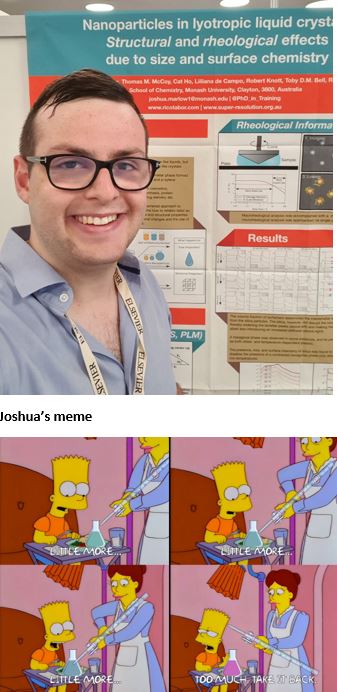
Congratulations to our runner up, Joshua Marlow, Postdoc Researcher, at the University of Sydney, School of Chemistry, working under the supervision with Professor Greg Warr.
Joshua is investigating ‘hybrid liquids’, new solvents which combine the best aspects of ionic liquids and deep eutectic solvents for applications such as novel lubricants and solvents.
This is my first postdoctoral position and I’d love to continue in academia, continuing to research soft matter systems such as these.
The award will be spent towards registration, travel, or accommodation to attend either IACIS 2022 in Brisbane or an upcoming ANSTO User Meeting to promote his research and learn from others in the field.
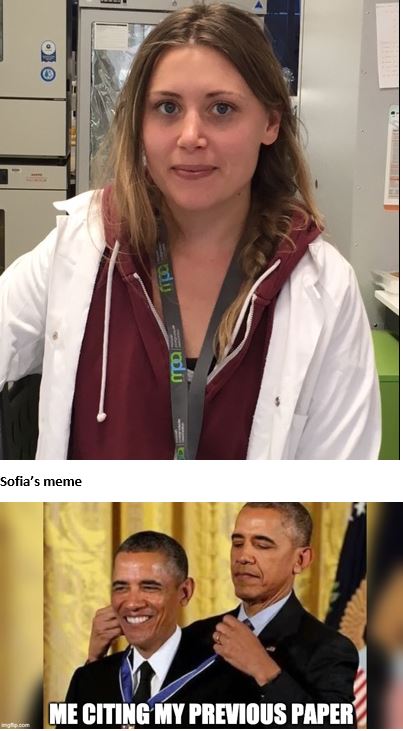
Congratulations to our runner up, Sofia Dahlman, third year PhD student at Monash University, School of Biological Science, working under the supervision of Dr Jeremy Barr.
Sofia’s research investigates the diversity of bacteriophages, viruses that infects bacteria, in the human gut microbiome. More specifically Sofia is interested in temperate phages that can integrate into the host genome and cause phenotypical changes, for example increased fitness or virulence of the host. Now it is very much at the discovery phase, but downstream it could lead to increased understanding of what makes a healthy gut microbiome. In the future Sofia hopes to continue her research in this field either in industry or at a post-doc position.
The award will be used to attend the Viruses of Microbe (iVOM) conference hopefully in person in Portugal 2022.
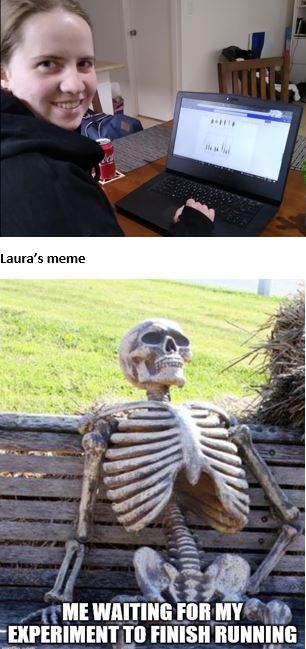
Congratulations to our runner up, Laura Kate Inglis, first year PhD student, Flinders University, School of Biological Sciences, working under the supervision of Professor Robert Edwards.
Laura’s project involves creating an ontology to group metagenomes by their isolation source and examining whether the taxonomy or functional profile of a metagenome can be used to predict the isolation source. She is also examining how the number of prophages in a bacterial genome differs with different isolation sources.
I would like to continue with a career in research after I finish my PhD, but it’s still fairly early in my PhD so a different opportunity may come along, you never know. I like to keep my options open.
Laura plans to spend her prize money to go to the combined ABACBS and Phylomania 2021 hybrid conference in November 2021.
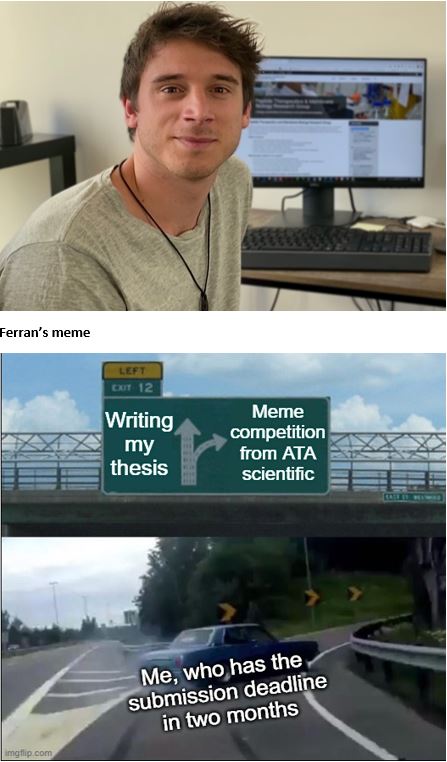
Congratulations to our runner up, Ferran Nadal-Bufi, PhD student at Queensland University of Technology, School of Biomedical sciences, based at the Translational Research Institute, working under the supervision of Dr Sónia Troeira Henriques.
Ferran’s research is focused on developing peptide-based drugs that modulate protein-protein interactions as a target to inhibit intracellular cancer pathways. His project includes peptide design and synthesis, cell-penetrating peptides, cell-based assays, and proteomics.
Ferran would like to pursue a career in academia after finishing his PhD, in the field of medicinal chemistry.
The award money will be used to pay registration fees to attend the 14th Australian Peptide Conference in Gold Coast, Queensland. At the final year of my PhD, this conference would be a great opportunity to share and discuss my research, and network with top scientists in my field to progress my career after completing my PhD.
But wait there is more!
We would like to thank all those that participated. The next Encouragement Award will be posted on our website soon.
For more information or to stay informed of other upcoming promotions please ‘Like us” on Facebook or contact us.
Contact usAPRIL ENCOURAGEMENT AWARD WINNERS 2021
ATA Scientific would like to thank all those that participated in our April 2021 Encouragement Award promotion.
The theme of our latest competition focused on vaccine hesitancy. Vaccines have been proven to offer the best defence against deadly infections, yet, there is still a sizeable percentage of people, many from higher-income regions, who are hesitant to receive them. Anti-vaccination was identified by the World Health Organisation as one of the top ten global health threats of 2019. Diseases, such as measles, are making a resurgence and experts say people are avoiding vaccines due to fear and misinformation.
Why do some people believe such devious misinformation? How can we counter this misinformation to restore vaccine confidence as we start to vaccinate the world population against COVID-19?
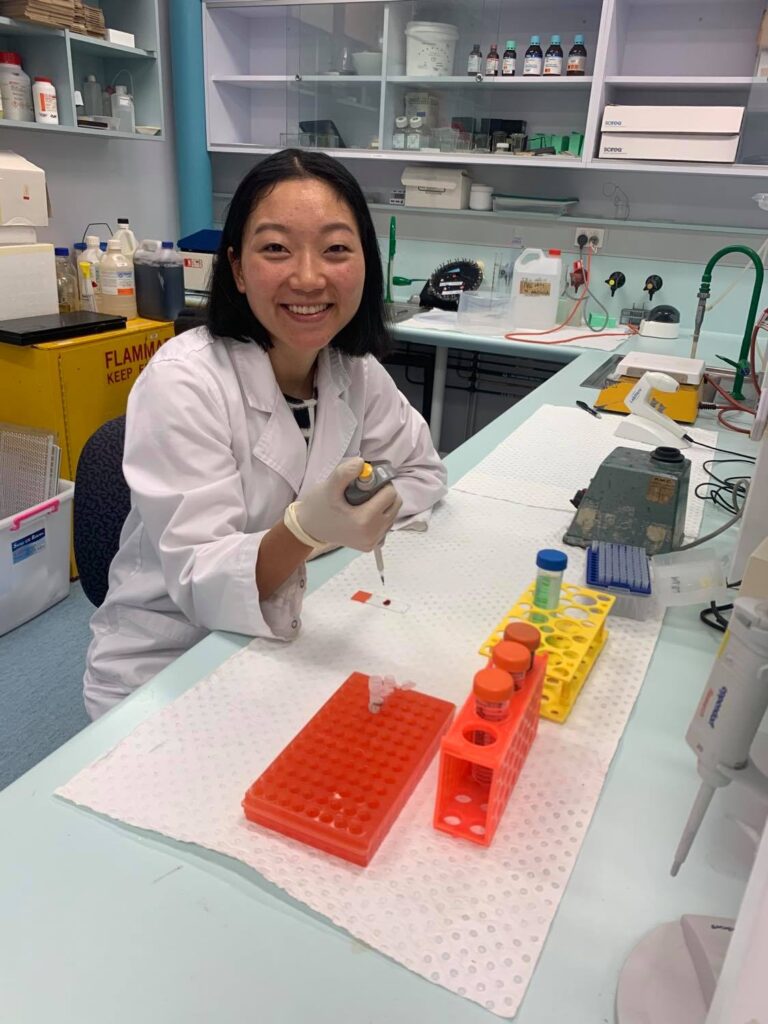
OUR WINNERS
Three entries were selected to receive our award– first prize at $1500 and 2 runners up at $600 each.
Congratulations to our first prize winner, Carolyn Wang, PhD Candidate at the School of Human Sciences, University of Western Australia, working under the supervision of Dr Kimberley Wang.
Carolyn is a third-year PhD student in the Respiratory Physiology Laboratory at The University of Western Australia, under the supervision of Dr Kimberley Wang and A/Prof Peter Noble. Her PhD project looks at the mechanisms underlying the association between obesity and asthma, following the novel discovery of adipose tissue in the airway wall. Her mission is to explore the role of this airway-associated adipose tissue and how it can contribute to the development of asthma. Understanding the structural and functional implications of adipose tissue within the airway wall may direct future therapeutic interventions for obese asthmatic patients, who experience more severe asthma symptoms and are less responsive to current therapies.
“I hope to continue my career in research by undertaking a post-doc after my PhD. I’m excited to follow the emerging discoveries in respiratory research and hope to contribute to these findings.
This award will be used to attend The Thoracic Society of Australia and New Zealand’s Annual Scientific Meeting in 2022. I look forward to the opportunity to attending this conference in person, where I can network and share my work with my peers and collaborators”.
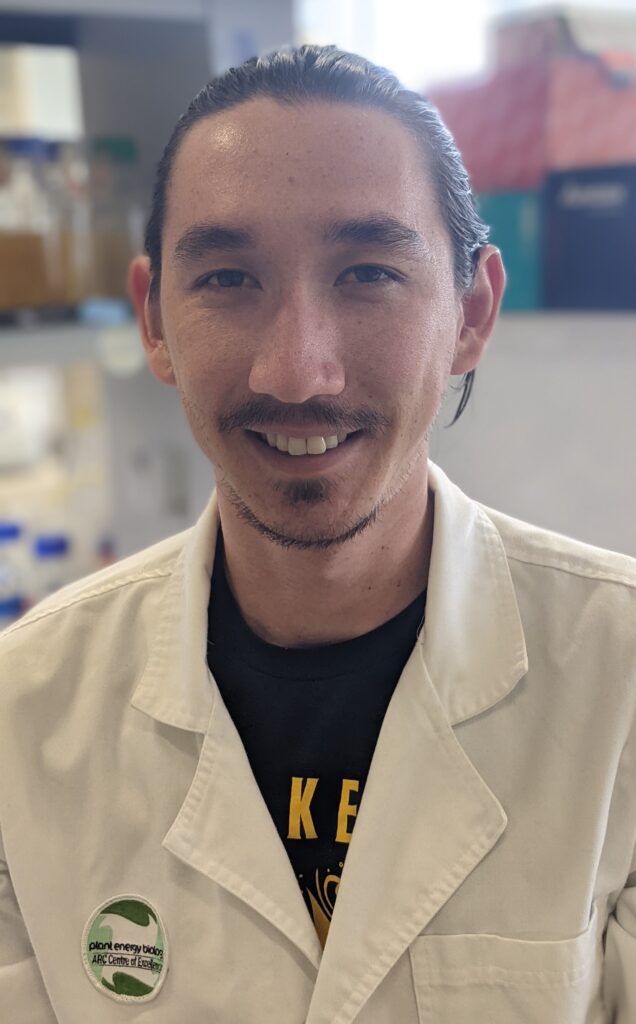 Congratulations to our runner up, Farley Kwok van der Giezen, PhD Researcher, at the University of Western Australia, School of Molecular Sciences, under the supervision of Professor Ian Small.
Congratulations to our runner up, Farley Kwok van der Giezen, PhD Researcher, at the University of Western Australia, School of Molecular Sciences, under the supervision of Professor Ian Small.
In collaboration with the ARC CoE Plant Energy Biology group, Farley’s research investigates RNA binding proteins in plants, particularly in early branching plants like ferns. A set of these ancient plants have a unique type of RNA editing which converts uridine to cytidine in their chloroplast and mitochondria. This type of reaction is energetically unfavourable, but these plants have found a way. Uncovering these mechanisms will aid further understanding of how plants actually achieve this. As part of this work, Farley is developing synthetic RNA editing proteins with the goal of developing a molecular tool for improving plant energy production, and possibly even treating human mitochondrial disease.
“My aspirations post-PhD are to work in the Australian synthetic biology space, either in research or industry. I am also passionate about education, outreach, and communication. I would also love to work in government to inform science policy and help bridge the gap between science and the public”.
The award will help Farley attend the 2021 Synthetic Biology Australasia conference later this year.
“The pandemic has stolen the opportunity for all of us to travel to international conferences to share our research and network with the global science community. The opportunity to attend the SBA 2021 conference will be an invaluable experience to present work, share ideas and connect with national colleagues”.
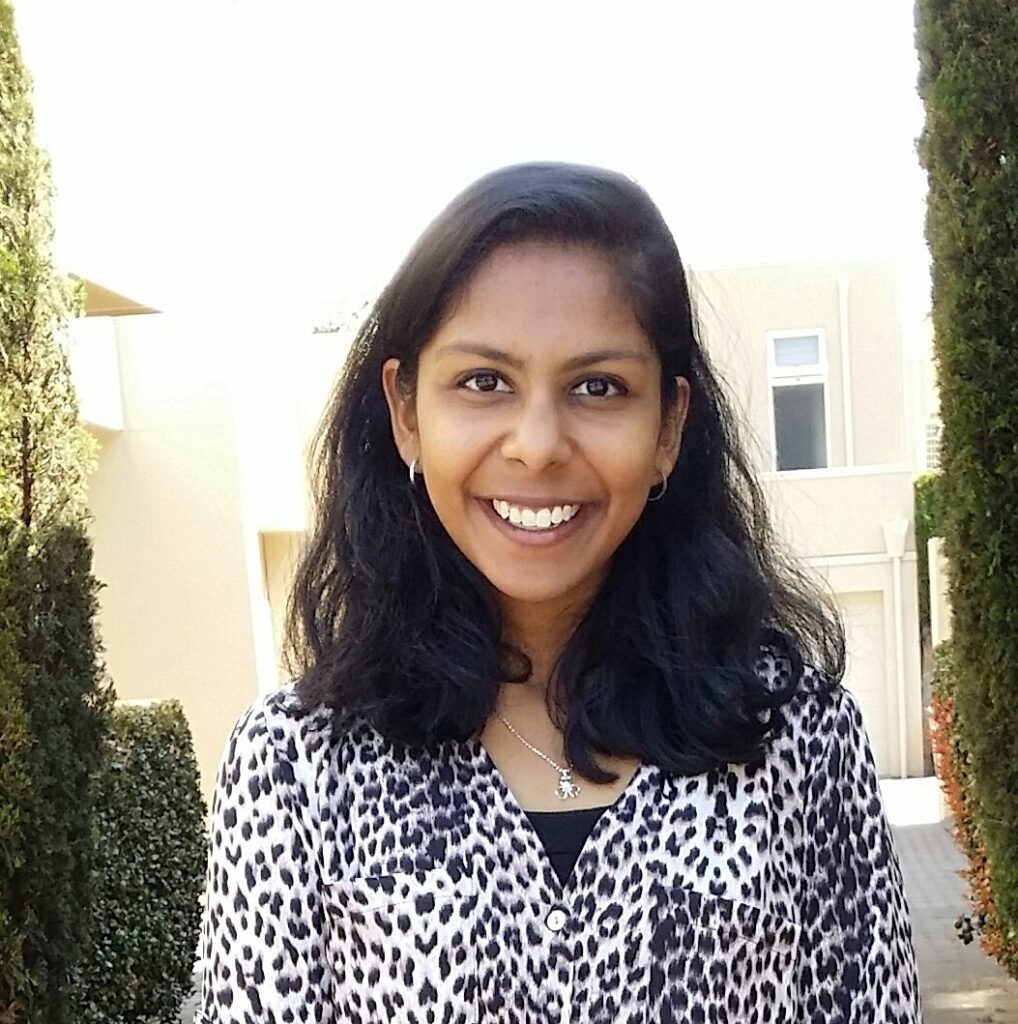 Congratulations to our runner up, Santhni Subramaniam, third year PhD candidate at the Clinical and Health Sciences, University of South Australia under the supervision of Professor Clive Prestidge.
Congratulations to our runner up, Santhni Subramaniam, third year PhD candidate at the Clinical and Health Sciences, University of South Australia under the supervision of Professor Clive Prestidge.
Santhni’s project focusses on the use of nanoparticles as drug delivery strategies against intracellular infection, in which bacteria have found a nice for survival within immune cells that were programmed to kill them. Santhni has shown some preliminary results to prove her hypothesis and currently is further understanding on the limitation posed by nanoparticles for these infections.
As in-person conferences remain limited, Santhni plans to spend her award money on the next experimental techniques and methods to further validate her current results.
Congratulations to our 3 winners!
But wait there is more!
A surprise $500 prize for significant contribution to our award was given to Armin Kavehei, PhD student at Macquarie University, School of Earth and Environmental Sciences, working under supervision of Professor Damian Gore and Professor Grant Hose.
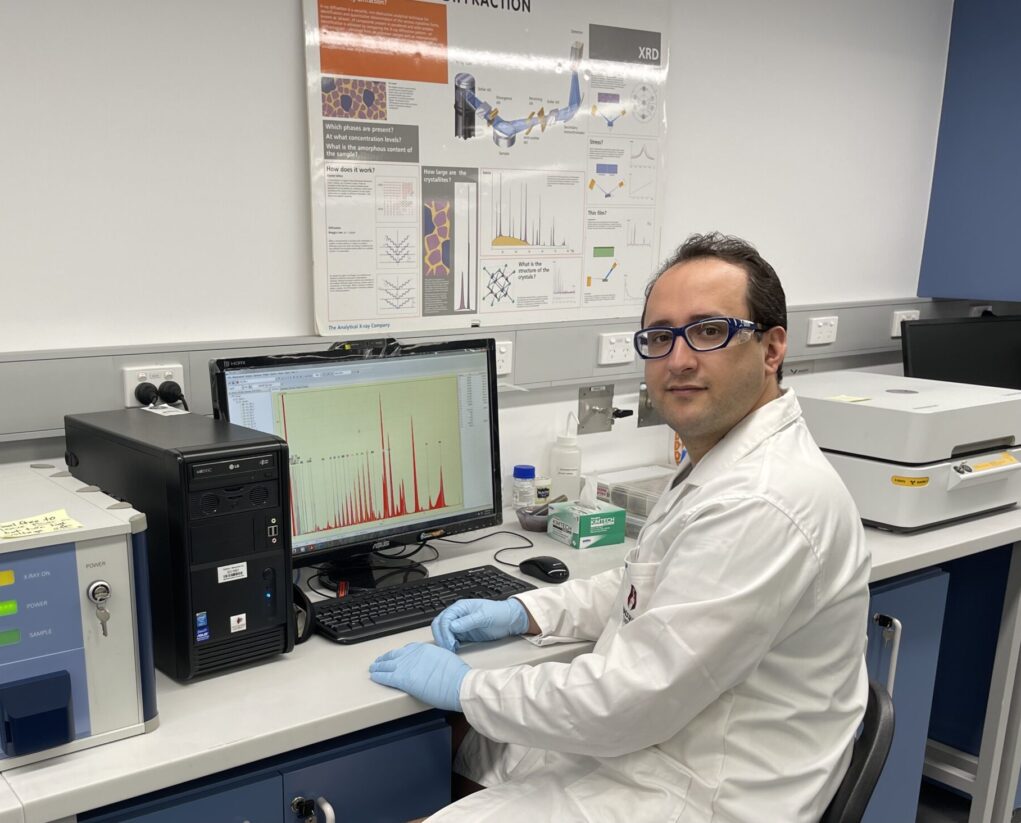 Armin’s project focuses on new methods for the assessment of contaminated sites, using base metal legacy mines as an example. Assessments are usually conducted via soil, sediment and water chemistry, and less commonly using invertebrate assemblages. The responses of whole biological communities provide a better understanding of contamination in soil, sediment and water. Armin seeks to determine whether or not soil and streams near mines are impacted by analysing the presence or absence of biota via measurement of the deoxyribonucleic acid (DNA) they shed in the environment (i.e., environmental DNA or ‘eDNA’). Similarly, the impacts of contaminants may also be observed in the biota downstream using eDNA. The outcomes of his research will provide tangible benefits for the environment and communities near and downstream of contaminated areas.
Armin’s project focuses on new methods for the assessment of contaminated sites, using base metal legacy mines as an example. Assessments are usually conducted via soil, sediment and water chemistry, and less commonly using invertebrate assemblages. The responses of whole biological communities provide a better understanding of contamination in soil, sediment and water. Armin seeks to determine whether or not soil and streams near mines are impacted by analysing the presence or absence of biota via measurement of the deoxyribonucleic acid (DNA) they shed in the environment (i.e., environmental DNA or ‘eDNA’). Similarly, the impacts of contaminants may also be observed in the biota downstream using eDNA. The outcomes of his research will provide tangible benefits for the environment and communities near and downstream of contaminated areas.
Armin plans to use the award to attend ALGA’s 2021 New Zealand Land & Groundwater Conference. “Attending this conference will provide opportunities for me to expand my network of expert collaborators, and introduce myself as a new researcher in this field”.
We would like to thank all those that participated. The next Encouragement Award will be posted on our website soon.
For more information or to stay informed of other upcoming promotions please ‘Like us” on Facebook or contact us.
Contact usDECEMBER 2020 ENCOURAGEMENT AWARD WINNERS
ATA Scientific would like to thank all those that participated in our December 2020 Encouragement Award promotion.
The topic of our latest competition focused on the Eurovision song contest and the use of Artificial Intelligence (AI) to compose songs. Since most songs are related to human personal interactions such as love songs we asked our participants to consider how they would feel about an affectionate song dedicated to them composed by a robot. Some argued that we are already using intelligent software to create compelling music, with an intention directly aimed at driving more sales. The question then arises, will music composed using AI eventually all sound the same? As AI increasingly becomes part of our daily lives and builds into creative practice, many artists see it as a useful tool, not unlike a camera or a paintbrush.
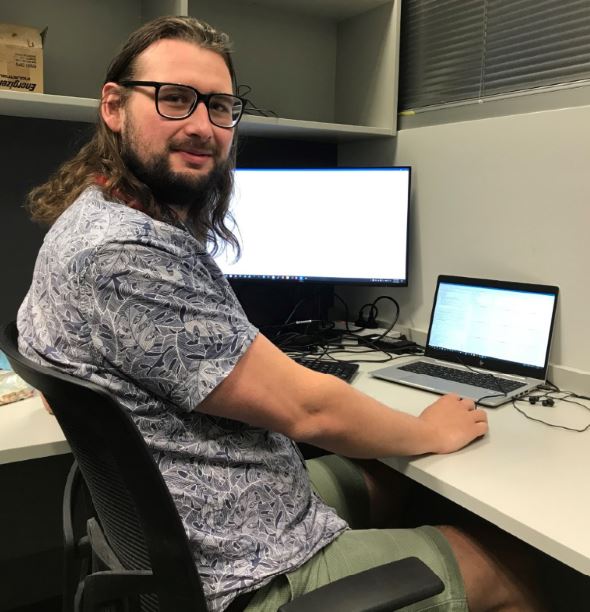 OUR WINNERS
OUR WINNERS
Three entries were selected to receive our award– first prize at $1500 and 2 runners up at $600 each.
Congratulations to our first prize winner, Dr Ben Vezina, Postdoctoral Research Fellow at Monash University, Department of Infectious Diseases, working under the supervision of Dr Kelly Wyres.
‘Research science revolves around spending time problem-solving, discovering and working out new concepts with some of the most creative, clever, curious and educated people in the world, so it’s one of my favourite spaces to be. More specifically, I want to help resolve issues around antibiotic resistance as well as continue basic research into bacteria, which are curious microscopic life forms with incredible complexity.’
Ben’s current research project focuses on disease-causing bacteria called Klebsiella pneumoniae, which causes a variety of infections in humans. While it inhabits a diverse range of environments and hosts, we don’t yet understand how this is related to its ability to cause disease, or how it spreads within human populations. Ben’s research team believes it may have something to do with the genetic diversity of Klebsiella pneumoniae’s DNA, which allows different populations of the bacteria to survive in different environments. To work this out, Ben uses computer software to study DNA of Klebsiella pneumoniae to determine which compounds they require for survival. This may help explain whether or not Klebsiella pneumoniae found in the environment are contributing to the spread of human infections.
Ben plans to spend his award on attending the evolutionary/microbiological conference SMBE 2021. ‘Having an opportunity to meet with international researchers is important for me to develop ideas, collaborations and continue contributing to the field.’
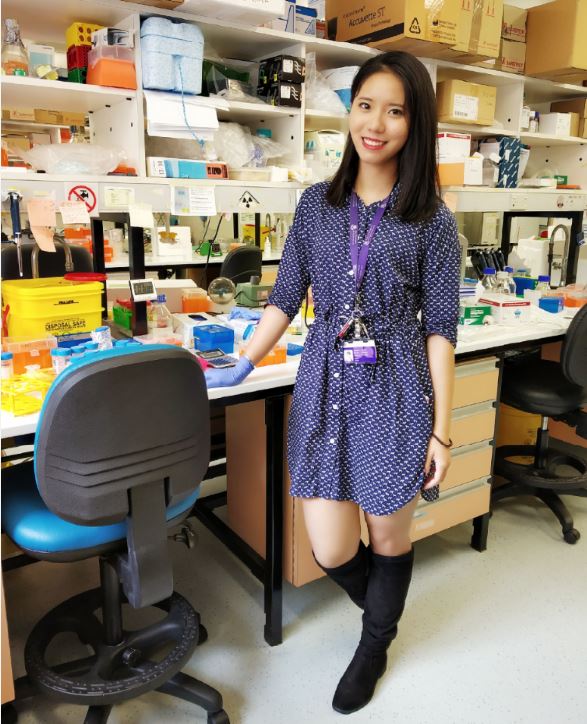
Congratulations to our runner up, Jiayue Clara Jiang, a final-year PhD candidate at the School of Chemistry and Molecular Biosciences, the University of Queensland, under the supervision of Dr Kyle Upton and Associate Professor Joe Rothnagel.
Clara’s project focuses on the genetic mechanisms behind breast cancer, the most common type of cancer affecting Australian women. By combining bioinformatics with molecular approaches, Clara seeks to understand the role of transposons, or “jumping genes”, in the transcriptional regulation of breast cancer. Clara employs various bioinformatic tools to analyse transcriptomics and epigenetics data, such as RNA-seq and ChIP-seq, and to identify transposons with putative regulatory roles in breast cancer. She then validates the activities of these transposons using wet-lab approaches, and investigate the effects of transposon-derived regulatory activities on oncogene expression and cancer phenotypes. The identification of transposon-driven oncogene activation events in cancer provides additional insights into the cancer genome, and potentially provides novel biomarkers for disease diagnosis and targets for treatments.
After her PhD, Clara plans to continue her research career in the fields of cancer biology, genomics or transcriptomics as a post-doc. In addition, Clara is a member of the Equity, Diversity and Inclusion Committee at her School, and intends to continuously advocate for workplace equity and diversity in the future.
‘I plan to use the award to attend the ComBio2022 conference, or other bioinformatics/ cancer-related conferences. The opportunity to present my findings at these events will help me increase the impact of my research, and to broaden my network.’
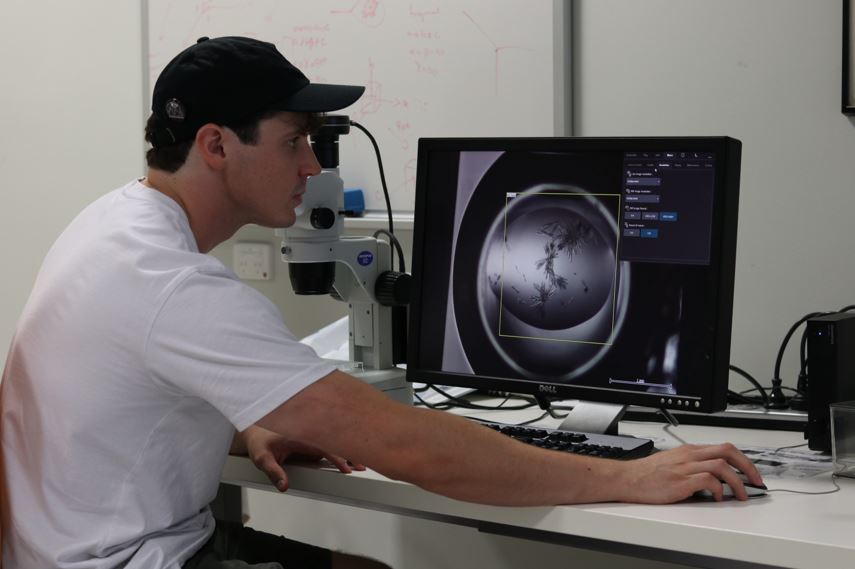
Congratulations to our runner up, Callum Verdonk, PhD Candidate, The University of Western Australia, Protein Production and Structure Facility, under the supervision of Prof. Charlie Bond and Dr. Josh Ramsay.
Callum’s project focusses on bacterial DNA transfer – specifically how a particular type of protein is involved in mobile DNA excision and transfer.
‘My career goals are to continue in the research field, investigating further bacterial studies, particularly focusing on mobile DNA elements and bacterial evolution. I have a particular interest in continuing my knowledge of biochemistry and genetic manipulation techniques.’
Callum uses biophysical techniques such as surface plasmon resonance and microscale thermophoresis to investigate protein-DNA interactions, as well as structural biology techniques such as X-ray crystallography and small-angle X-ray scattering to elucidate protein and complex molecular structures.
‘I would’ve loved to go to Lorne proteins 2021!’
Given the limitation on in-person conferences, Callum plans to spend his award money on purchasing equipment for sequencing-related work to help investigate a new exciting discovery!
We would like to thank all those that participated. The next Encouragement Award will be posted on our website soon.
For more information or to stay informed of other upcoming promotions please ‘Like us” on Facebook or contact us.
Contact us



 02 9541 3500
02 9541 3500